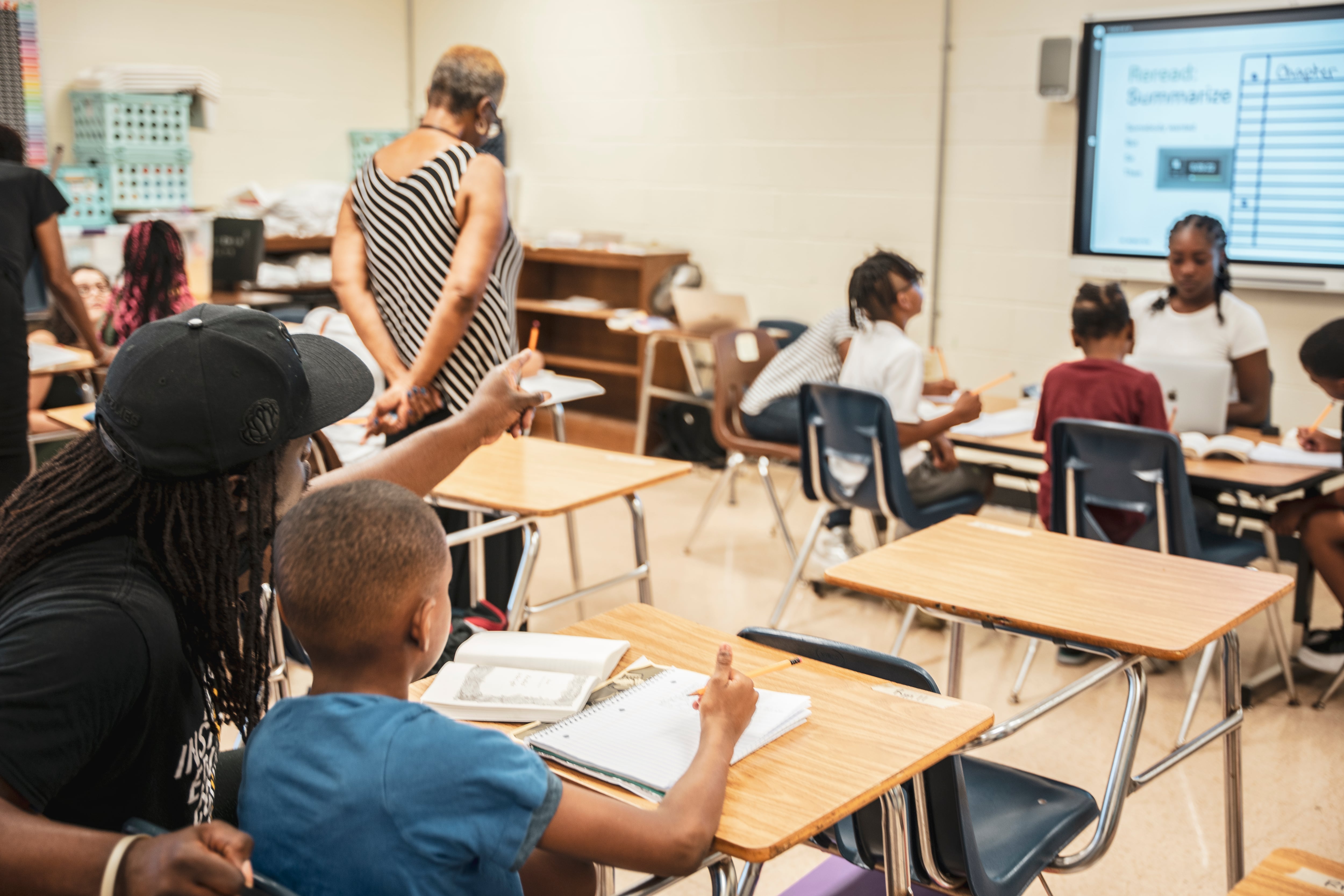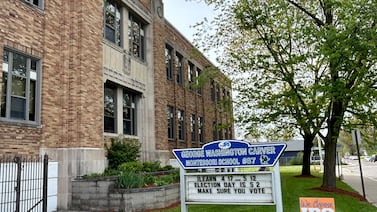Sign up for Chalkbeat Tennessee’s free daily newsletter to keep up with Memphis-Shelby County Schools and statewide education policy.
Memphis-Shelby County Schools leaders have proposed eliminating 675 jobs along with a mix of student programs as they figure out how to cut $150 million in spending from next year’s budget.
The budget gap is an expected result of the end of federal pandemic relief programs, which were meant to help school districts manage the impact on student learning. District leaders have been preparing for this day with analyses of how they spent the money, so they can try to preserve what has been most effective for students.
All over the country, districts have been bracing for what they describe as a fiscal cliff: the sudden dropoff in funding from federal aid programs that have provided billions of dollars over the past few years to support construction projects, staff additions, raises and bonuses, and tutoring. The choices they make to compensate for that loss stand to affect high-poverty districts the most, researchers say, in part because students in those districts received a larger share of funding to address their greater needs.
Tennessee districts like MSCS will benefit from a new state school funding formula that came with a $1 billion infusion of new state funds, so the cliff won’t be so steep. But it’s still pretty tricky terrain, and MSCS is taking a harder look at which positions and programs it can afford to trim without sacrificing academic progress too much.
“We don’t have a $150 million problem,” interim Superintendent Toni Williams told board members at a budget meeting earlier this month. “We’ve just got to make some decisions on what’s working and what’s not working.”
MSCS seeks to preserve classroom assistants, tutoring
Board members assembled at a two-day retreat earlier this month to take stock of the district’s early budget proposals and provide their input and guidance. There, leaders provided an overview of how the district used its $776 million in relief funds. Some of the top-dollar initiatives were meant to be one-time expenditures, Chief Financial Officer Tito Langston explained — $176 million for building construction, for example.
But other expenses that the federal funds covered, like increased staff, are recurring costs. Those are the kinds of budget items that will warrant a closer look to see whether they can and should be sustained after the federal money runs out. Since the start of the pandemic, MSCS staff increased by almost 2,000 people, to some 14,700 budgeted employees this year, documents show.
The Memphis district spent almost $100 million of its federal funds to hire 750 specialized education assistants. The assistants have supported kindergarten, first- and second-grade classrooms by improving the adult-to-student ratio, at a cost that came out to $1,300 per student each year.
It’s been worthwhile, according to Bill White, the district’s planning and accountability director, who told board members the staff have particularly helped students in math.
Nonetheless, the district has proposed eliminating 1 of every 5 assistants to decrease the program cost.
MSCS district leaders want to preserve funding for tutoring, which has been especially effective for students who are the furthest behind in reading and language arts. And leaders said MSCS needs to continue funding more remote instruction to make up for a shortage of qualified teachers.
“This is a last resort,” White said of the program, where students in a classroom learn from an online teacher.
New state funding system won’t provide enough
Langston, the district CFO, said the state’s new public school funding formula, known as Tennessee Investment in Student Achievement, or TISA, increased MSCS’ general operating budget by about $100 million. Without pandemic funding, the district expects to operate with $1.2 billion in revenue.
About a third of the new TISA funds went to charter schools, he said, and most of the rest has been focused on teacher recruitment and retention. Many Memphis teachers received raises this year through a new salary schedule. Some of the funds were used for one-time signing bonuses, so those expenses won’t recur next year.
Still, “TISA wasn’t enough to sustain the strategies” implemented through pandemic funds, Langston said. “We were always going to look at … other costs.”
For example, district officials are considering changing the way schools are grouped for administrative purposes, to eliminate some 323 leadership roles.
Even with those proposed cuts, MSCS board members and district leaders would have to cut another $60 million from a menu of $265 million in programs and initiatives that MSCS leaders say they aren’t required by law or policy to fund.
Details about MSCS’ and other districts’ spending of federal aid have been hard to come by.
A Georgetown University report shows Tennessee is among 20 states that do not report how school districts ultimately spent their federal aid.
The Memphis district publicized its intended plans for the funds, and has provided piecemeal updates. Still, meeting materials from the budget retreat, for instance, are still not published online. And there is no one place the public can go to see how each dollar has been spent.
School board members were scheduled to meet about the budget changes again on Nov. 29 and Nov. 30, from 3 to 7 p.m. each day. As of Monday morning, no meeting location or agenda had been posted.
Chalkbeat Tennessee Bureau Chief Tonyaa Weathersbee contributed to this report.
Laura Testino covers Memphis-Shelby County Schools for Chalkbeat Tennessee. Reach Laura at LTestino@chalkbeat.org.





